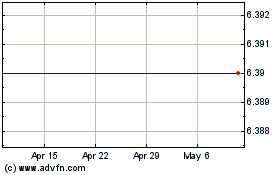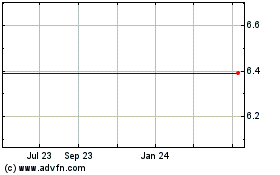UPDATE: For-Profit College Group Sues To Block New Regulations
January 21 2011 - 3:40PM
Dow Jones News
A trade group representing a number of for-profit colleges has
filed suit in federal court seeking to block the U.S. Department of
Education from implementing new rules governing state-level program
authorization, incentive compensation for employees and
misrepresentation of promotional materials.
The rules were part of a package of 13 regulations issued by the
federal government in late October. The 14th rule, generally
considered the most controversial as it could punish programs for
graduating students with high debt loads, is expected to be issued
in the next few months and isn't included in this suit.
The Association of Private Sector Colleges and Universities,
known as APSCU, on Friday asked the U.S. District Court for the
District of Columbia to block the rules from going into effect as
planned on July 1. APSCU alleged in the suit that its members are
"grievously and irreparably injured" by the three rules and asked
the court to find the regulations unlawful. It said the Education
Department didn't follow correct procedure in creating the rules
and violated its scope of power and the Constitution.
APSCU boasts more than 1,500 member schools, including campuses
owned by Career Education Corp. (CECO), DeVry Inc. (DV), Education
Management Corp. (EDMC), ITT Educational Services Inc. (ESI),
Washington Post Co.'s (WPO) Kaplan Higher Education and others.
The group said it simultaneously sent a letter to U.S. Secretary
of Education Arne Duncan, asking him to voluntarily withdraw the
regulations. Duncan is also named as a defendant in the suit.
The Education Department said it hasn't yet received the
letter.
If not withdrawn within a given time frame, APSCU will ask the
court for an injunction "until the substance of our challenges are
resolved," Miller said.
Justin Hamilton, a spokesman for the Education Department, said
the agency is "confident that the published regulations will do the
best job of protecting students and taxpayers."
Miller warned the issue of state authorization may be difficult
to compromise on. The rule issued in October will require schools
to receive approval from every state in which it has students,
using metrics approved by the federal government. That's a daunting
task for some schools with nationwide online operations.
Miller said it's unlikely all states will be able to update
their procedures to meet the federal government's requirements by
the July 1 deadline, leaving students in those states potentially
ineligible for access to federal student aid.
The incentive compensation regulation has been a lightning rod
for criticism, as many industry insiders say it's unclear who is
restricted from receiving bonuses based on student performance.
Intended to ensure that recruiters don't enroll underqualified
students to meet bonus targets, many say they don't know whether
the rule would also apply to football coaches who bring in top
athletes or even chief executives who improve student retention and
graduation rates.
Meanwhile, Miller said the two sides could likely come to an
easy agreement on the rule governing how schools can be punished
for providing misrepresentative material to the public, and what
constitutes a "substantial misrepresentation." According to the
lawsuit, the current rule violates the Constitution's due process
clause in the way it handles penalties for misstatements.
-By Melissa Korn, Dow Jones Newswires; 212-416-2271;
melissa.korn@dowjones.com
Bridgepoint Education, Inc. (NYSE:BPI)
Historical Stock Chart
From May 2024 to Jun 2024

Bridgepoint Education, Inc. (NYSE:BPI)
Historical Stock Chart
From Jun 2023 to Jun 2024
